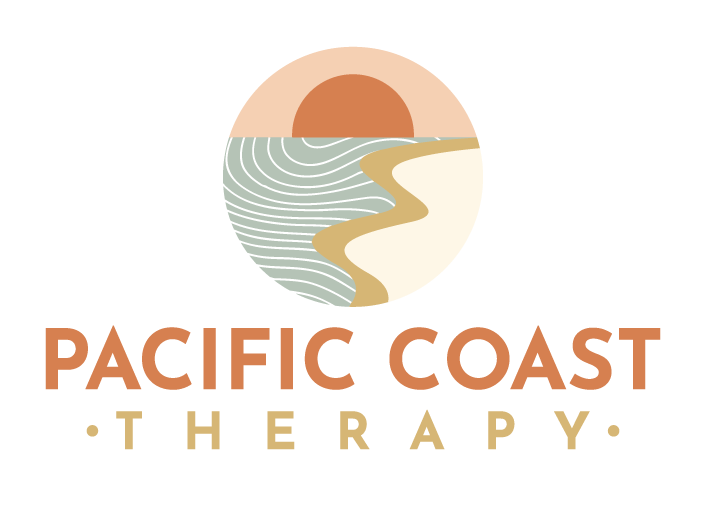Marriage Counseling in San Jose, CA

Is Your Marriage Struggling?
You’re lying awake at 2 am, wondering if your marriage can survive. The same fights on repeat. The crushing silence. You coordinate schedules and grocery lists, but can’t remember your last real conversation. One of you works 80-hour weeks. The other feels invisible. You’re terrified of divorce but exhausted from trying.
Research shows the average couple waits six years from when problems start before seeking therapy in San Jose. For high-achieving Silicon Valley professionals who solve complex problems daily, asking for help feels like admitting failure. For many couples, fear and shame prevent them from seeking support earlier. But here’s the truth: the strongest couples are the ones wise enough to get help before resentment hardens into contempt.
Pacific Coast Therapy specializes in evidence-based marriage counseling for San Jose couples. We help couples rebuild connection, break destructive patterns, and create lasting change.
Most couples see meaningful improvement in 12-20 sessions. EFT shows 70-75% of couples move from distress to recovery, with 90% demonstrating significant improvements. You’ve already invested years in this relationship. Investing in professional help now costs far less than divorce later.
How Marriage Counseling Works at Pacific Coast Therapy
Your First Session: What Really Happens
Walking into your first session is scary. You don’t know what to expect, and you’re worried about being judged. Here’s the reality:
We start by listening to your story. Each partner shares their perspective while we listen for patterns. You’re not just roommates coordinating logistics. One partner might pursue connection while the other withdraws. Or both attack during conflicts. We identify your specific negative cycle.
We assess for the Four Horsemen, as Dr. John Gottman calls them: criticism, contempt, defensiveness, and stonewalling. These predict relationship failure with 90% accuracy. When you say “You NEVER help around the house” (criticism) or roll your eyes while your partner talks (contempt), you’re not just fighting poorly. You’re triggering nervous system responses that make connection impossible.
Then we create a roadmap specifically for you. Some couples need EFT to access deeper emotions and heal attachment wounds. Others need the Gottman Method’s practical tools for better communication.
Emotionally Focused Therapy (EFT) for Deeper Connection
You’re stuck in the same fight on repeat, but it’s never really about dishes or whose turn it is. EFT addresses the deeper question beneath every conflict: “Are you there for me? Do I matter to you? Can I count on you?”
One partner says, “I need to know you care,” while the other says, “I’m scared I’m failing you.” When you understand the fear beneath the anger, you can reach for each other instead of pushing each other away.
What EFT looks like in practice:
You’ll learn to recognize your negative cycle. You may pursue (asking, demanding, criticizing) while your partner withdraws (shutting down, going silent, leaving the room). Neither of you is the villain. You’re both trying to protect yourselves from emotional pain.
Your therapist helps you access primary emotions like fear and hurt, rather than staying stuck in secondary emotions like anger. “I’m furious you came home late” becomes “I was scared something happened to you, and when you didn’t call, I felt like I don’t matter.”
EFT success rates are backed by decades of research. You’ll build new patterns that allow you to be emotionally accessible, responsive, and engaged with each other. These aren’t just feelings. They’re specific, learnable skills.
Our EFT-trained therapists:
Gottman Method for Communication Skills
Love isn’t just feelings. It’s specific, learnable behaviors. The Gottman Method is backed by 40 years of research studying thousands of couples. Dr. Gottman can predict divorce with 90% accuracy by watching couples talk for 15 minutes.
You’ll learn the exact tools to build friendship, manage conflict without destroying each other, and turn toward each other in small daily moments. Every session gives you something concrete to practice.
The Four Horsemen (and their antidotes):
Criticism attacks character: “You’re so selfish, you never think of anyone else.” The antidote is a gentle complaint about a specific behavior: “I felt scared when you were late without calling. Can we create a communication system?”
Contempt includes rolling your eyes, mocking, or treating your partner with disgust. It’s the single most significant predictor of divorce. The antidote is building a culture of appreciation, even when you’re frustrated.
Defensiveness says, “It’s not MY fault, YOU should have…” The antidote is taking responsibility for even 10% of the problem.
Stonewalling means a complete shutdown, walking away, or giving the silent treatment. The antidote is to take breaks when flooded, then return to the conversation.
Gottman also teaches you:
- The 5:1 ratio (five positive interactions for every negative one)
- How to turn toward bids for connection instead of away
- Why 69% of conflicts are perpetual and won’t be “solved”
- How to manage those perpetual issues without them destroying you
Our Gottman-trained therapists:
Signs It’s Time for Marriage Counseling
You don’t need to be in crisis to benefit from therapy. But if you recognize these patterns, professional help can prevent deeper damage:
- You’re stuck in the same fight. You had this exact argument about his mother’s visit twelve times this year. Nothing changes. This isn’t really about his mother. It’s about feeling like your needs don’t matter to him.
- You feel like roommates, not partners. You coordinate drop-offs and grocery lists. You sleep in the same bed. But you can’t remember your last vulnerable conversation or the last time you felt emotionally close.
- One of you had an affair. Infidelity creates PTSD-like symptoms: intrusive thoughts, triggers everywhere, and an inability to trust. Recovery takes a minimum of 18-24 months with professional guidance. You can’t just “get over it.”
- Work stress is destroying your connection. You’re both working 60-80 hour weeks. Silicon Valley’s always-on culture makes it nearly impossible to transition from analytical work mode to emotional intimacy. You treat each other like colleagues, not lovers.
- The Four Horsemen are present. If criticism, contempt, defensiveness, or stonewalling have become your default communication style, you need intervention before the damage becomes irreparable.
- You’re considering separation. Most couples wait six years before seeking help. If divorce is on the table, therapy is your last chance to save this. But it requires both partners willing to examine their own contributions.
Why San Jose Couples Choose Pacific Coast Therapy
We Understand Silicon Valley Stress
Generic marriage counseling advice doesn’t work when both partners are working 80-hour weeks at demanding tech jobs. We get it.
San Jose couples face unique challenges: 47.6% have bachelor’s degrees or higher, the median household income is $141,086, and both partners likely have demanding careers. You’re dealing with extreme cost-of-living pressures, with median home prices exceeding $1.46 million. Financial stress isn’t about poor planning. It’s about surviving in the nation’s most expensive region while maintaining a relationship.
We help you:
- Transition from work mode (analytical, problem-solving) to partner mode (emotional, present)
- Navigate dual-career competition over whose job takes priority
- Find any balance when startup culture demands everything
- Protect your relationship from the demands of high-achieving careers
- Address the isolation that comes with working constantly
Your 80-hour work weeks aren’t character flaws. They’re the reality of Silicon Valley. We provide strategies that work within that reality, not fantasy advice about “unplugging more.”
Evidence-Based Approaches That Work
We don’t do generic talk therapy. Our therapists are specifically trained in the two most research-backed approaches to couples therapy.
Emotionally Focused Therapy achieves 70-75% recovery rates, with results holding at two-year follow-up. The Gottman Method is backed by 40 years of research on thousands of couples. These aren’t trendy approaches. They’re proven interventions with decades of successful outcomes.
You’ll understand the “why” behind every intervention. We don’t just tell you to communicate better. We explain attachment theory, nervous system responses, and the psychology of conflict. When you understand why you react the way you do, change becomes possible.
Culturally-Informed Care for Diverse Communities
San Jose is 38.4% Asian American (Vietnamese, Chinese, Indian, Filipino) and 31% Hispanic, with 42.8% of residents born outside the United States.
In Asian American communities, seeking mental health support can conflict with cultural values where problems should stay within the family. Hispanic families value “la ropa sucia se lava en casa” (don’t air dirty laundry). We understand that asking for help may feel like a violation of cultural expectations.
Our therapists provide care that respects cultural values, immigration experiences, interfaith marriages, and cultural family expectations. You can honor your heritage while still getting the support your relationship needs.
We’re also a welcoming space for LGBTQAI+ couples, neurodiverse individuals, and all individuals seeking affirming, judgment-free care.


Common Marriage Issues We Help With
- Communication breakdown and constant conflict – Learn to express needs without attacking and listen without defending.
- Emotional disconnection and feeling like roommates – Rebuild intimacy and friendship when logistics have replaced connection.
- Infidelity recovery and trust rebuilding – Navigate the 18-24 month healing process with structured support. (Link to future deep-dive page)
- Work-life balance struggles for tech couples – Protect your relationship from demanding careers. (Link to Silicon Valley mental health blog)
- Sexual intimacy issues – Address mismatched desire, emotional barriers to physical connection, and rebuilding after betrayal.
- Parenting disagreements and co-parenting stress – Align on parenting approaches and manage stress of raising kids while working full-time.
- Financial conflicts – Navigate money stress, different spending styles, and financial pressure from high cost-of-living.
- Life transitions – Manage stress from job changes, relocations, becoming parents, or caring for aging parents.
- Dual-career couple dynamics – Address competition, whose career takes priority, and identity tied to achievement.
For comprehensive therapy services beyond marriage counseling, visit our main San Jose therapy page.
Getting Started with Couples Therapy Is Simple
You’ve waited long enough. Here’s how to begin:
- Book a free 15-minute consultation
No pressure, no commitment. Ask questions, learn about our approach, and assess if we’re the right fit. - Schedule your first session
We offer morning and evening appointments from 8am to 9pm, Monday-Friday, and from 9am to 5 pm on Saturday and Sunday. Virtual therapy is available anywhere in California. - Begin your work together
Most couples attend weekly 50-minute sessions for 12-20 weeks. You’ll see improvements within the first 4-6 sessions.
Location:
Convenient to Highway 85, Highway 17, and Highway 280. Serving San Jose, Campbell, Los Gatos, Saratoga, Willow Glen, Almaden Valley, and surrounding Silicon Valley communities.

Get Started
The Pacific Coast Therapy team is passionate about helping people thrive. If you're ready to take the next step in your life, contact us today to schedule a free 15-minute phone consultation. One of our caring therapists can offer support. To start your therapy journey, please follow these simple steps:
1
Contact Us
Text, call, email, or fill out the form at the bottom of the page in order to contact us.
Meet With A Caring Therapist
Take part of a free 15-minute consultation with a therapist to see if it is the right fit.
3
Begin The Road To Healing
Start meeting on a regular basis and conquer your goals.
Get Started

